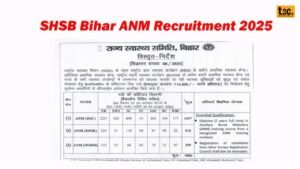Navigating Highway Laws in India

Navigating Highway Laws in India.
The National Highways Fee (Determination of Rates and Collection) Rules, 2008 govern toll collection. These rules primarily focus on safety, traffic management, and the responsibilities of various stakeholders, including drivers, pedestrians, and transport authorities. The key laws and regulations relevant to highways in India include:
1. The Motor Vehicles Act, 1988
This is the primary legislation regulating road transport and vehicle-related laws in India. Key provisions include:
– Driving License: All drivers must possess a valid driving license for the vehicle category they are driving.
– Speed Limits: Speed limits are set by both central and state governments. Exceeding the speed limit is a punishable offense.
– Safety Measures: The use of seatbelts for drivers and front-seat passengers is mandatory. Wearing helmets for two-wheeler riders is also mandatory.
– Traffic Signals and Signs: Drivers are required to follow all traffic signals, signs, and directions provided by traffic authorities.
– Drunk Driving: Driving under the influence of alcohol or drugs is illegal. The permissible blood alcohol content (BAC) limit is 0.03%.
– Insurance: It is mandatory to have third-party insurance for all vehicles.
2. National Highways Act, 1956
This act lays down provisions for the development and management of national highways. Key aspects include:
– Control of National Highways: The government has control over the planning, development, and maintenance of national highways.
– Land Acquisition: The act governs the acquisition of land for constructing and expanding highways.
– Toll Collection: Tolls can be levied on certain highways, and the government can contract private players for toll collection under public-private partnership (PPP) models.
3. Central Motor Vehicles Rules, 1989
These rules provide specific guidelines regarding:
– Vehicle Standards: Specifies standards for vehicle safety, emissions, and other technical requirements.
– Road Safety Equipment: Requires safety features such as reflectors, seat belts, and emission control systems in vehicles.
– Driver Conduct: Rules on overtaking, lane usage, honking, and other behavior on highways.
4. Highways Administration Rules, 2004
These rules are designed to govern activities on national highways, covering aspects like:
– Control of Access: Authorities regulate entry to national highways and prohibit unauthorized encroachments or constructions on highway land.
– Right of Way: The rules govern how public and private users interact with highways, including the use of overpasses, underpasses, and pedestrian crossings.
5. National Highways Authority of India (NHAI) Act, 1988
This act established the National Highways Authority of India (NHAI), which is responsible for the development, maintenance, and management of national highways.
6. The Road Transport Corporation Act, 1950
This act allows state governments to set up transport corporations that oversee road transport services, particularly in the case of state highways.
7. Traffic Rules and Offenses
Traffic rules and penalties are governed by state governments, though they align with national regulations. Some common offenses include:
– Jumping Red Lights: Violators face fines or license suspensions.
– Driving Without a License: A punishable offense leading to fines or imprisonment.
– Overloading: Carrying passengers or goods beyond the legal limit is prohibited.
– Hit and Run Cases: Severe penalties are imposed, including imprisonment and fines.
8. Toll Laws and Regulations
– Toll Tax: The National Highways Fee (Determination of Rates and Collection) Rules, 2008 govern toll collection.
– Electronic Tolling: The introduction of the FASTag system for electronic toll collection has become mandatory on many national highways.
9. State-Specific Laws
Each Indian state may have specific laws and rules related to state highways and roadways. For example, traffic fines, speed limits, and rules about vehicular emissions may vary between states.
10. Emergency Provisions
India has also established emergency response provisions for highways, including mandatory establishment of highway patrolling units, roadside assistance, and emergency helpline numbers.
Traffic police, highway patrols, and local authorities enforce these laws, issuing fines, suspending licenses, or taking legal action when violations occur. The focus is on enhancing road safety, regulating traffic, and maintaining road infrastructure. Thus, the article Navigating Highway Laws in India helped in understanding highway laws of the country.
Stay tuned on our website as if any official information pops up then we will update you in minutes! If you want all the latest updates on time then join our student community on WhatsApp!
Choose the right career yourself by booking personal guidance from professionals on Mytagapp.com!









